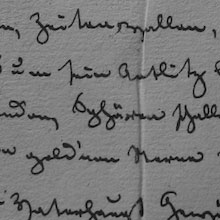Contributors to Volume 24, No. 2
Sarah Brouillette
Sarah Brouillette is an associate professor in the Department of English at Carleton University, where she teaches post-WWII British, Irish, and postcolonial literature, and topics in print culture and media studies.
Nicholas Brown
Nicholas Brown’s Utopian Generations: The Political Horizon of Twentieth-Century Literature (Princeton, 2005) examines the relationship between postcolonial literature and European modernism, and the relationship of each to continuing crises in the global economic system. His current projects include Hegel: Users’ Manual. He heads the Department of African American Studies at the University of Illinois at Chicago. Nicholas Brown’s CV
Jen Hammond
Jen Hammond is a doctoral student at the University of Illinois at Chicago. Her scholarly work focuses on the Frankfurt school, aesthetic theory, and twentieth-century American poetry.
Neil Larsen
Neil Larsen is Professor of Comparative Literature and of Critical Theory at the University of California, Davis. His books include Modernism and Hegemony (Minnesota UP, 1990); Reading North by South (Minnesota, 1995); and Determinations (Verso, 2001). His essay “The Idiom of Crisis: on the Historical Immanence of Language in Adorno” recently appeared in Language without Soil: Adorno and Late Philosophical Modernity, ed. Gerhard Richter (Fordham, 2010); the latter will appear in German translation in the forthcoming issue (#33) of the German-language journal of critical theory, Krisis. He has two works-in-progress: Towards a Critical Theory of ‘Theory’ and Principles of Immanent Critique and also works and writes in the area of Latin American Studies. He is an editor of the journal of the Marxist Literary Group, Mediations, and a member of the editorial collective of Krisis.
Leerom Medovoi
Leerom Medovoi is an Associate Professor of English at Portland State University and director of the Portland Center for Public Humanities. He is the author of Rebels: Youth and the Cold War Origins of Identity (Duke, 2005) and publishes on the cultures of permanent war; age studies; biopolitics, race, and globalization. His most recent writings include: “Global Society Must Be Defended: Biopolitics Without Boundaries,” Social Text 25.2 (Summer 2007); “Nation, Globe, Hegemony: The Transnational Turn in American Studies,” Interventions: International Journal of Postcolonial Studies ??7.2 (Fall 2005); ”Globalization as Narrative: Three Critiques,” ??Review of Education/Pedagogy/Cultural Studies 24.1-2 (Spring-Summer 2002); and ”Cold War American Culture as the Age of Three Worlds,” Minnesota Review 55-57 (2002).
Mathias Nilges
Mathias Nilges is Assistant Professor of English at St. Francis Xavier University in Nova Scotia, Canada, where he teaches contemporary American literature and critical theory. His articles have appeared in edited collections and journals such as Mediations and Callaloo. He is currently finishing a book-length manuscript entitled Nostalgia for the Future: U.S. Literary History and Form, Postmodernism and Beyond, and is co-editing a collection entitled The End of Literature?: Marxist Literary Criticisms in the Twenty-first Century with Emilio Sauri.
Emilio Sauri
Emilio Sauri is a Ph.D. candidate at the University of Illinois at Chicago, where he is currently completing his dissertation, Crisis and Modernism: Culture, Economy, and Form in Twentieth-Century U.S. and Latin American Literature. His essay, “‘A la pinche modernidad’: Literary Form and the End of History in Roberto Bolaño’s Los detectives salvajes” will appear in MLN in spring, 2010.
Imre Szeman
Imre Szeman is Professor of English and Film Studies at the University of Alberta. His most recent book is Cultural Theory: An Anthology (Wiley-Blackwell, 2010). More information about his work can be found at www.crcculturalstudies.ca.
Gáspár Miklós Tamás
G. M. Tamás was born in 1948 in Cluj/Kolozsvár, Transylvania, Romania. After studying the classics and philosophy, he worked for a Hungarian-language literary journal in his hometown, and published books and essays, including a copiously commented edition of Descartes’s Discourse on Method. Harassed by the secret police there, he was forced in 1978 to emigrate to Hungary, where he taught the history of philosophy at the University of Budapest. He was fired and blacklisted in 1981 for “dissident activities” and had become one of leading figures of the democratic opposition. One of the main orators of the 1988-89 demonstrations and meetings, he was elected to the Hungarian Parliament as a liberal in 1990, and elected head of the Institute of Philosophy of the Hungarian Academy of Sciences in 1991. He subsequently left professional politics in 1994 and academic administration in 1995, veered sharply to the left, resigned from the liberal party, and today is described as revolutionary Marxist. Two of his books have been translated into French as L’Oeil et la main (1985) and Les Idoles de la tribu (1989), and his essays have appeared in fourteen languages. He has been a visiting professor at Columbia, Oxford, Chicago, Georgetown, Yale and other universities. He is the recipient of the Soros Foundation Lifetime Achievement Award (2003) and the Press Freedom Award (2005). He lives in Budapest.
